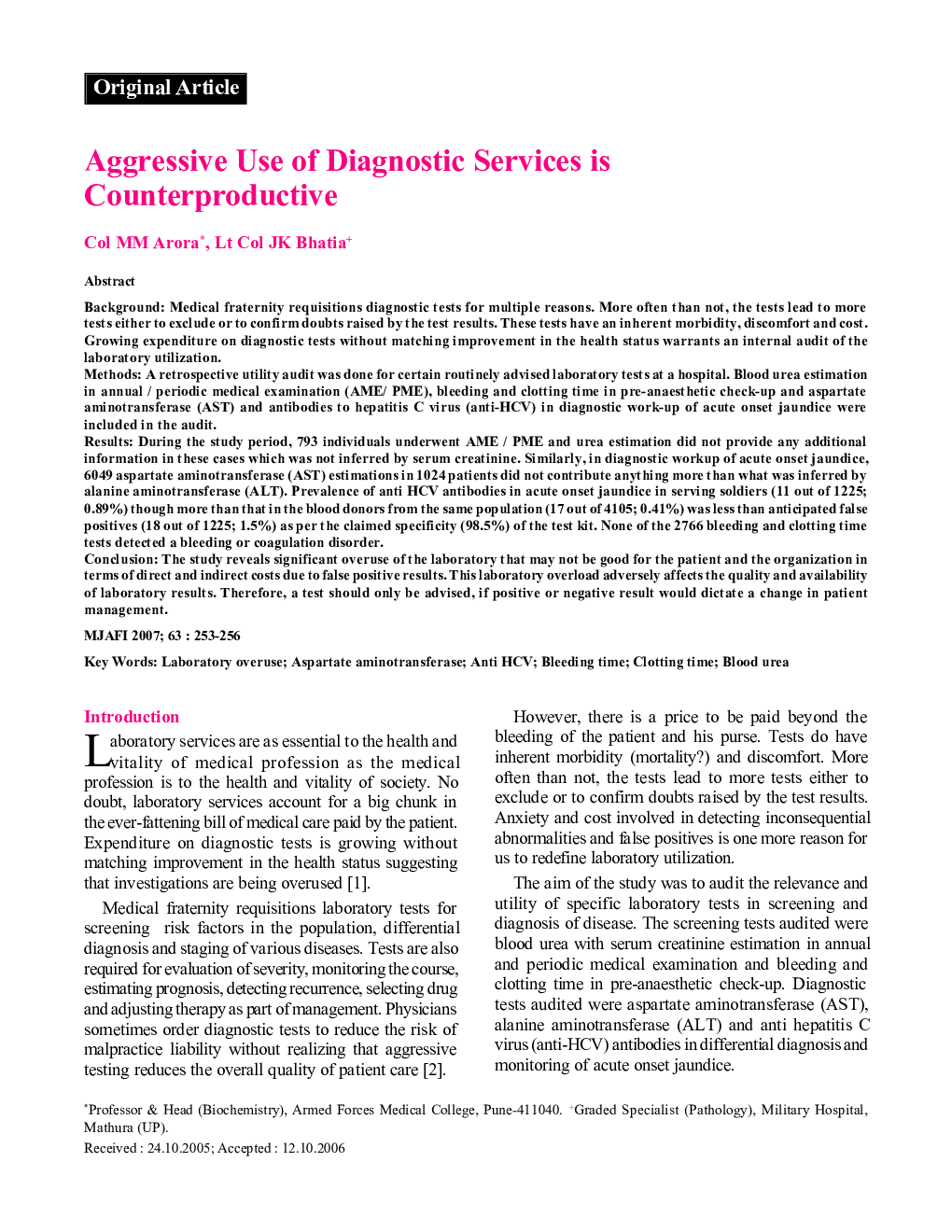| Article ID | Journal | Published Year | Pages | File Type |
|---|---|---|---|---|
| 3161852 | Medical Journal Armed Forces India | 2007 | 4 Pages |
BackgroundMedical fraternity requisitions diagnostic tests for multiple reasons. More often than not, the tests lead to more tests either to exclude or to confirm doubts raised by the test results. These tests have an inherent morbidity, discomfort and cost. Growing expenditure on diagnostic tests without matching improvement in the health status warrants an internal audit of the laboratory utilization.MethodsA retrospective utility audit was done for certain routinely advised laboratory tests at a hospital. Blood urea estimation in annual / periodic medical examination (AME/ PME), bleeding and clotting time in pre-anaesthetic check-up and aspartate aminotransferase (AST) and antibodies to hepatitis C virus (anti-HCV) in diagnostic work-up of acute onset jaundice were included in the audit.ResultsDuring the study period, 793 individuals underwent AME / PME and urea estimation did not provide any additional information in these cases which was not inferred by serum creatinine. Similarly, in diagnostic workup of acute onset jaundice, 6049 aspartate aminotransferase (AST) estimations in 1024 patients did not contribute anything more than what was inferred by alanine aminotransferase (ALT). Prevalence of anti HCV antibodies in acute onset jaundice in serving soldiers (11 out of 1225; 0.89%) though more than that in the blood donors from the same population (17 out of 4105; 0.41%) was less than anticipated false positives (18 out of 1225; 1.5%) as per the claimed specificity (98.5%) of the test kit. None of the 2766 bleeding and clotting time tests detected a bleeding or coagulation disorder.ConclusionThe study reveals significant overuse of the laboratory that may not be good for the patient and the organization in terms of direct and indirect costs due to false positive results. This laboratory overload adversely affects the quality and availability of laboratory results. Therefore, a test should only be advised, if positive or negative result would dictate a change in patient management.
